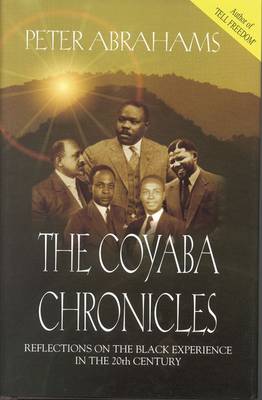`By the time these chronicles are made public we will, I suspect, be into the twenty-first century. I did not expect to live this long.' These are among the first words of the memoirs from Peter Abrahams, novelist and writer, born in Vrededorp, South Africa in 1919. Best Known for such classic novels as Mine Boy (1946) and Tell Freedom (1954) (both still in print), Abrahams draws on a wealth of experience and the uniquely authoritative perspective that comes from having lived for almost the entire twentieth century and across three continents, to reflect on the black experience in the last century. The Coyaba Chronicles: Reflections on the Black Experience in the Twentieth Century is both a personal memoir and a powerful meditation on what W.E.B. Dubois defined at the beginning of the century as `...the problem of the colour line; of the relations between the lighter and darker races of man....' Using Dubois as a point of departure, Abrahams writes passionately, about the inherent `wrongness' of racial hatred and contemplates such timeless questions as: `Why was colour the most crucial issue of our century?' `When will we get over the deep psychic and emotional damage done by the racial experience?' This is one of the major themes of the memoir - that of the quest for an integrated identity - a challenge that faces people of colour in both first and third world countries. The Coyaba Chronicles is also the personal journey of Peter Abrahams. It is the odyssey of a young South African who worked for a time as a seaman in order to leave his homeland for wartime Britain and post-war France to become a writer; it is the story of his personal relationships with the Black literati of the day and his involvement in the pan-Africanist movement of the 1950s, which allows for his fascinating personal pen-portraits of men like W.E.B. Dubois, Julius Nyerere, Kwame Nkrumah, Richard Wright and Langston Hughes. It is how the journey takes him to the Caribbean island of Jamaica, where he and his wife, Daphne and their three children find sanctuary from racial divisiveness at `Coyaba.' Finally, it is about the author's lifelong companionship with Daphne and how their multi-racial union reflects a symbolic `one-bloodedness' mirroring Abrahams's own admirable sensibilities.
- ISBN13 9789766370145
- Publish Date 30 May 2004 (first published 31 December 2000)
- Publish Status Active
- Publish Country JM
- Imprint Ian Randle Publishers,Jamaica
- Format Hardcover
- Pages 409
- Language English
